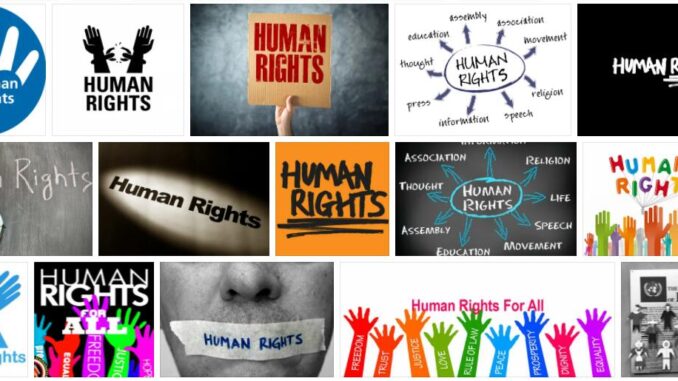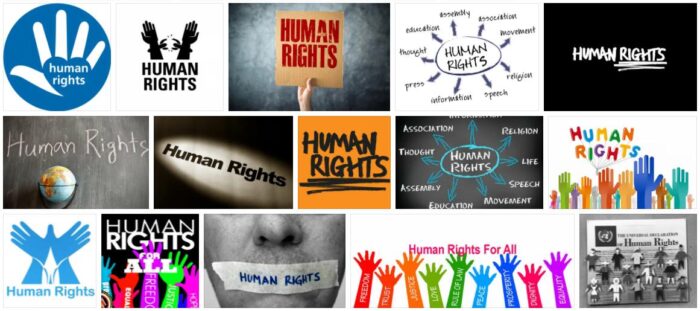
The Universal Declaration of Human Rights was approved on December 10, 1948 by the United Nations General Assembly. Currently, three generations of human rights are spoken of:
- The rights of the first generation were demanded by the liberal revolutionaries of the 17th and 18th centuries; they are civil and political rights such as freedom, security, procedural guarantees, the right to vote and property.
- The rights of the second generation correspond to the demands of labor movements: economic rights (protection against unemployment, living wages or rest), education and the enjoyment of cultural assets (health and housing).
- The rights of the third generation arose due to two factors: on the one hand, the changing values of society and, on the other hand, the new national and international organization. They are the right to live in peace, to have an uncontaminated environment or the right to development, among others. The rights of children, immigrants and ethnic or religious minorities also come into play here.
History of human rights
The Magna Carta , promulgated by the English king João Sem Terra in 1215, is considered a precursor of human rights. It established the limits of power in front of the subjects (“a free man cannot be detained, nor imprisoned, nor placed outside the law…”) and the fair trials (“we will not put you in prison if it is not in virtue judgment according to the law of the country ”). Although this document has meant a very positive advance, during the Middle Ages human life continued to be regarded as something of very little value.
The realization of what would later be known as “human rights” occurred during the Illustration. Montesquieu (1 689-1755) defined freedom as “the right to do everything that the law allows us”. Montesquieu’s ideas in relation to limiting absolute power, establishing a balance between the Legislative, Executive and Judiciary powers, had an influence in the United States and in France, as can be seen in the Declaration of the Rights of Man and the Citizen.
Jean-Jacques Rousseau (1712-1778), on the other hand, denounced injustice and inequality, stating that “men owe justice and freedom only to laws”. Evidently, this definition is only valid if the law is the expression of the general will; moreover, a government is only legitimate insofar as it serves the common good. Rousseau’s theories are also precursors of human rights, since they focus on the submission of men to the general will, under the postulate of collective equality.
The Declaration of Independence of the United States (with great influence of the philosophy of John Locke , 1632-1704), written by Thomas Jefferson in 1776, proclaimed: “We maintain, as true evidences, that all men are born equal, that they are endowed with their Creator of certain inalienable rights, among which is the right to life, freedom and the search for happiness… ”.
The Declaration of the Rights of Man and the Citizen would be proclaimed during the French Revolution , in 1789. It would define the basic rights of man, considered natural, such as freedom (individual, thought, press and creed), equality , security, respect for life and property.
The struggle for rights in Brazil
The cartoon below sadly summarizes the human rights situation in Brazil: The cartoon below sadly summarizes the human rights situation in Brazil:
The struggle for the implementation of rights in Brazil, as well as in the rest of the world, has not always been easy.
In the Brazilian case, the redemocratization of 1985 provided a new Constitution, promulgated in 1988, which is considered the most complete of our Constitutions and known as the “ Citizen Constitution ”, but it has not resisted time, showing its failures and limitations.
Although advances in relation to human rights in the country have been relevant, there is still a lot of struggle for the full realization of these rights to be achieved.
Therefore, it is necessary to guarantee the fair participation of all segments of society in political decisions and to bring citizens closer to their representatives, in order to effectively assert the political rights regained with redemocratization.
Finally, it must be admitted that the so-called “minorities” (women, blacks, GLBT, among other groups) have made significant progress in the exercise of their rights, but much remains to be done to ensure effective civil equality.
The “Citizen Constitution” seeks to ensure the widest rights to each individual within Brazilian society, taking care to combat prejudice by establishing legal and social equality. Improving it is not a right, but a duty to be exercised by each one of us.
